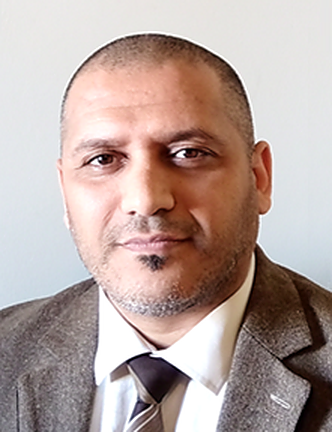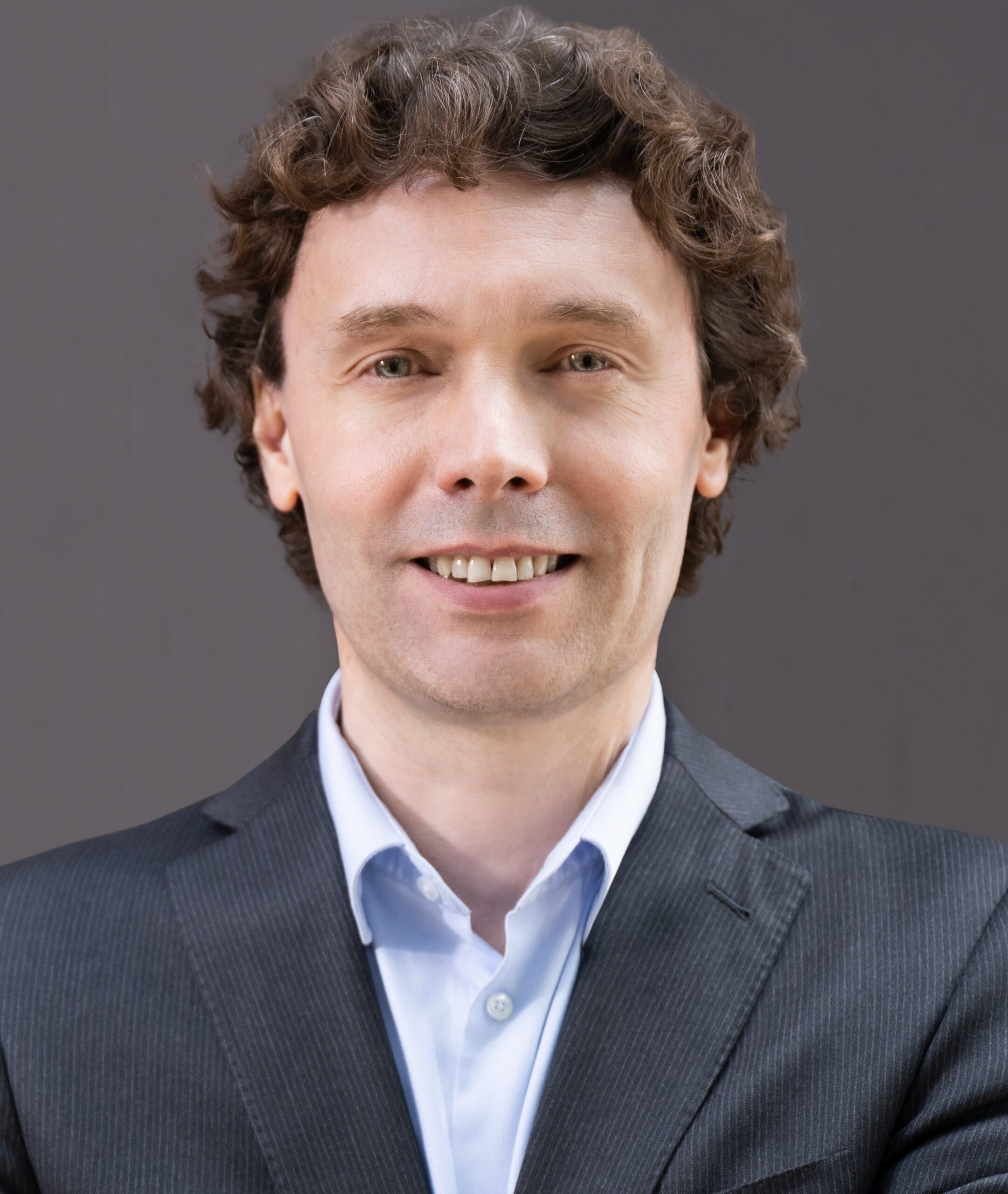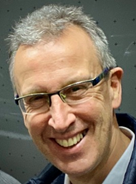 |  |  |
| Professor: Chaker Necibi Mohammed VI Polytechnic University, Morocco. | Professor: Bruno Sudret ETH Zürich, Switzerland. | Professor: Enrique Zuazua Friedrich–Alexander University, Germany. |
Keynote 1:
Wednesday, April 26, 2023 Time: 10:00- 11:00
 | Professor: Mohamed Chaker Necibi Mohammed VI Polytechnic University (UM6P), Morocco. Lead of the Sustainable Water Treatment & Reuse Lab The International Water Research Institute (IWRI). |
Integrated optimization framework for circular wastewater management: Closing the loop and retaining the value
Abstract: Cities around the world hold key competences to untap a multitude of opportunities in their pursuit to achieve SDGS in various sectors (SDG #2 No hunger, and SDG #6 Clean water and sanitation, to name a few). In this context, introducing circular economy principles and business models in the critical sector of wastewater management can lead to leapfrogging opportunities for water reclamation, resources recovery and bioenergy production, if implemented at an early planning stage within an integrated framework for sustainable development. It can thus provide economically viable and efficient alternatives to the conventional and wasteful linear-based water management and wastewater treatment strategies.
Hence, in order to reclaim and valorize the valuable resources in municipal and industrial wastewaters, a symbiotic and optimized framework based of the circular economy paradigm need to be developed. In this regard, we will explore related initiatives from public and private sectors establishing cross-boundaries platforms for the flow of resources, the various innovative circular designs, and the set of enabling advanced technologies. Selected inspiring success stories from around the world are also showcased.
Overall, and through these ‘circular’ levers, our cities are well placed to promote sustainable water and resources management patterns via circular economy.
About the Presenter
Chaker Necibi holds a PhD in Environmental Engineering from the University of Sousse, Tunisia, in 2008. After an international research career of more than 10 years in France (University of Montpellier), Germany (Technical University of Braunschweig), and in Finland (Lappeenranta University of Technology) where he was an Assistant Professor in Circular Economy, he is a permeant professor at UM6P since 2019.
C. Necibi and his research team focus on the development of advanced and sustainable technologies for water treatment, based on the principles of circular economy, including the optimization and integration of physicochemical, hydrothermal or biological processes for water reclamation, pollution removal, resources recovery bioenergy production and solar-driven desalination, in Morocco and Africa, though ongoing collaboration with the OCP group, MIT, and Arizona State Univ. He published more than 70 articles in ISI journals, three books on Biomass of Sustainable Applications (RSC), Bioeconomy (Springer), and Circular Economy (Academic Press), and he is in Stanford university’s list of the world’s top 2% scientists since 2019.
Keynote 2:
Wednesday, April 26, 2023 Time: 11:30-12:30
 | Professor: Bruno Sudret ETH Zürich, Switzerland. Institute of Structural Engineering, Chair of Risk, Safety & Uncertainty Quantification. |
Uncertainty quantification using surrogate modelling
Abstract: Nowadays, computational models have become an integral part of various fields of applied sciences and engineering. These models are used to forecast the behaviour of complex natural or man-made systems. Also known as simulators, they enable engineers and scientists to evaluate a system’s performance in a virtual environment, and then help optimize its design or operation.
Simulators, such as high-fidelity finite element models, often comprise numerous parameters, and their execution is expensive, even when using the available computing power to the fullest. Additionally, the complexity of a system leads to greater uncertainty in its governing parameters, environmental and operating conditions. In this context, uncertainty quantification (UQ) methods have gained popularity in both academia and industry in recent times, as they can be used to address reliability, sensitivity, or optimal design problems. Monte Carlo simulation, a well-known brute-force method, uses random number generation to solve these questions. However, it may require thousands to millions of simulations to produce accurate predictions, making it impractical for high-fidelity simulators.
In contrast, surrogate models can solve these UQ problems by creating an accurate approximation of the simulator’s response, using a limited number of runs at selected values (the experimental design) and a learning algorithm. In this lecture, we will first introduce the general features of surrogate models and their relationship with machine learning. Next, we will discuss polynomial chaos expansions in detail, along with their sparse version for high-dimensional problems. We will also address recent extensions to structural dynamics. Finally, we will explore Gaussian processes and their use in conjunction with active learning to solve reliability analysis problems.
About the Presenter
Bruno Sudret is a professor of Risk, Safety and Uncertainty quantification at ETH Zurich since 2012. B. Sudret received a master’s of science from the Ecole Polytechnique (France) in 1993. He then obtained a master’s degree and a Ph.D in civil engineering from the Ecole Nationale des Ponts et Chaussées (France) in 1996 and 1999, respectively. Dr. Sudret has been working in probabilistic engineering mechanics and uncertainty quantification for engineering systems since 2000: first as a post-doctoral fellow at the University of Berkeley (California), then as a researcher at EDF R&D (the French world leader in nuclear power generation) where he was the head of a group specialized in probabilistic engineering mechanics (2001-2008). From 2008 to 2011 he has worked as the Director of Research and Strategy at Phimeca Engineering (France).
B. Sudret is the author and co-author of more than 250 publications in journal and conference proceedings. He currently serves in the editorial board of Reliability Engineering and Systems Safety, Probabilistic Engineering Mechanics and Structural Safety. He promotes the dissemination of uncertainty quantification techniques through the development of the software UQLab (www.uqlab.com) and the community platform UQWorld (www.uqworld.org).
Keynote 3:
Thursday, April 27, 2023 Time: 9:00- 10:00
 | Professor: Enrique Zuazua Friedrich–Alexander University, Germany. Director of the Chair in Applied Analysis Humboldt Professorship (Germany) and the Chair of Computational Mathematics. University of Deusto (Spain). |
Control and Machine Learning
Abstract: We present some recent results on the interplay between control and Machine Learning.
We adopt the perspective of the simultaneous or ensemble control of systems of Residual Neural Networks (ResNets) and present a genuinely nonlinear and constructive method, allowing to show that such an ambitious goal can be achieved, estimating the complexity of the control strategies.
This property is rarely fulfilled by the classical dynamical systems in Mechanics and the very nonlinear nature of the activation function governing the ResNet dynamics plays a determinant role. The turnpike property is also analyzed in this context.
This lecture is inspired in joint work, among others, with Borjan Geshkovski (MIT), Carlos Esteve (Cambridge), Domènec Ruiz-Balet (IC, London), Dario Pighin (Sherpa.ai) and Martin Hernández (FAU).
About the Presenter
Enrique Zuazua Iriondo (Basque Country – Spain, 1961) holds the Chair of Dynamics, Control and Numerics – Alexander von Humboldt Professorship at FAU- Friedrich–Alexander University, Erlangen–Nürnberg (Germany), and secondary appointments at Universidad Autónoma de Madrid and the University of Deusto in Bilbao, Spain. His research in Applied Mathematics covers topics in Partial Differential Equations, Systems Control, Numerical Analysis and Machine Learning. He holds a degree in Mathematics from the University of the Basque Country, and a dual PhD degree from the same university (1987) and the Université Pierre et Marie Curie, Paris (1988).
He has been awarded the Euskadi (Basque Country) Prize for Science and Technology 2006, the Spanish National Julio Rey Pastor Prize 2007, the Advanced Grants NUMERIWAVES in 2010 and DyCon in 2016 of the European Research Council (ERC) and the SIAM W.T. and Idalia Reid Prize 2022. He is an honorary member of the of Academia Europaea and Doctor Honoris.